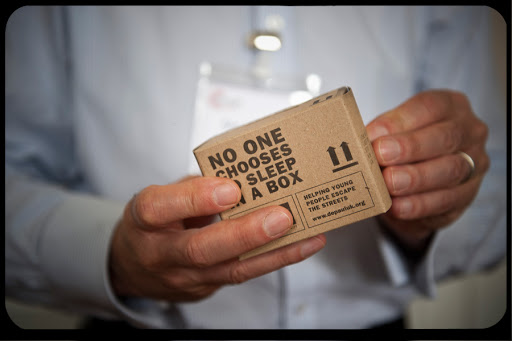We know he’s a Jesuit by religious vow. He’s told us he’s a Franciscan at heart. But is Pope Francis also a Vincentian? The recent news that he’s been sending the Vatican Almoner out with some Swiss Guards to attend to the sick and poor in their homes suggests he just might be, at least in spirit.
Earlier this year, Pope Francis appointed Archbishop Konrad Krajewski, a Polish prelate, as the official Papal Almoner, a Vatican post responsible for acts of charity done in the name of the Holy Father. Pope Francis, who has called for a Church “that is poor, and for the poor,” gave Krajewski his marching orders in no uncertain terms. "The Holy Father told me at the beginning: 'You can sell your desk. You don't need it. You need to get out of the Vatican,” said Krajewski. “Don't wait for people to come ringing. You need to go out and look for the poor.'"
And so, every day a Vatican courier delivers to Archbishop Krajewski a stack of letters from the sick or poor around Rome that have been personally reviewed by the Pope. The letters typically include terse instructions from the Holy Father such as “you know what to do,” or “go find them.” In the evening Krajewski takes some Swiss Guards and drives around Rome visiting with the poor, bringing them aid and comfort, spending time with them, all in the name of the Roman Pontiff. “This is the concept: Be with people and share their lives, even for fifteen, thirty minutes, an hour,” says Krajewski.
Pope Francis’s emphasis on the poor finds great resonance for members of the Society of St. Vincent de Paul, an international lay movement founded by Blessed Frederic Ozanam in Paris in 1833. Frederic, a student at the Sorbonne, was challenged by his socialist colleagues to demonstrate that his concern for the poor was more than mere words. “Don’t try to impress us with what priests and nuns are doing for the poor,” cried one of Frederic’s critics. “Tell us, what are you doing for them, you and your fellow Catholics in this room? Come, show us your works!”
That very evening, Ozanam gathered a group of companions in his quarters and admitted that the socialists had a point. Frederic recognized that his concern for the poor was largely rhetorical, even theoretical, but lacking in concrete action and a spirit of self-sacrifice. “We laymen must do our part to prevent the cold wind of materialism from snuffing out the warm flame of charity in France,” he declared. “We must proclaim through our acts that man is still his brother’s keeper. And in doing so, let us heed our old French proverb that says, “He gives nothing who does not give himself.’”
From that meeting sprang the Society of St. Vincent de Paul, named for the great 17th Century Parisian priest known as “the apostle to the poor.” Frederic and his companions soon journeyed into the poorest sections of Paris to minister personally, intimately to the poor. “No act of charity is foreign to the Society,” declared Ozanam, and so it was with Frederic and his companions, who brought dignity and friendship to the poor, along with food, clothing and medicine. Quickly, the Society spread to other French cities, then throughout Europe, and eventually throughout the world, including the United States in 1845.
Keep reading on the next page
Today, the Society of St. Vincent de Paul has three quarters of a million members and over 1.5 million volunteers in 149 countries around the world, assisting an estimated 40 million people every year. Last year in the United States, 150,000 Vincentians in parish-based conferences provided direct assistance to over 15 million needy people. (Full disclosure: I am president of the Society of St. Vincent de Paul in the Diocese of Providence, RI.) The Society’s fundamental model of service is the home visit, in answer to Blessed Frederic’s call, “Let us go to the poor.” This is a call echoed by Pope Francis in Evangelii Guadium, where he writes, “I prefer a Church which is bruised, hurting and dirty because it has been out on the streets …”
Pope Francis’s call for systemic change on every level, from the personal to the political, also corresponds exactly with the Vincentian approach. In Evangelii Guadium, the Holy Father writes:
How closely this parallels Frederic Ozanam’s observations in the early 19th Century, when he wrote:
Is Pope Francis a Vincentian? Not explicitly, perhaps. But in his call for a Church “that is poor, and is for the poor” – that is, for a Church that identifies closely with the poor – and in his insistence that this entails personal, loving service to our brothers and sisters, as well as systemic change, the answer is most certainly “yes!” Pope Francis, like Blessed Frederic Ozanam before him, is calling all of us to “go to the poor.” One way you can do that is through a local conference of the Society of St. Vincent de Paul.

